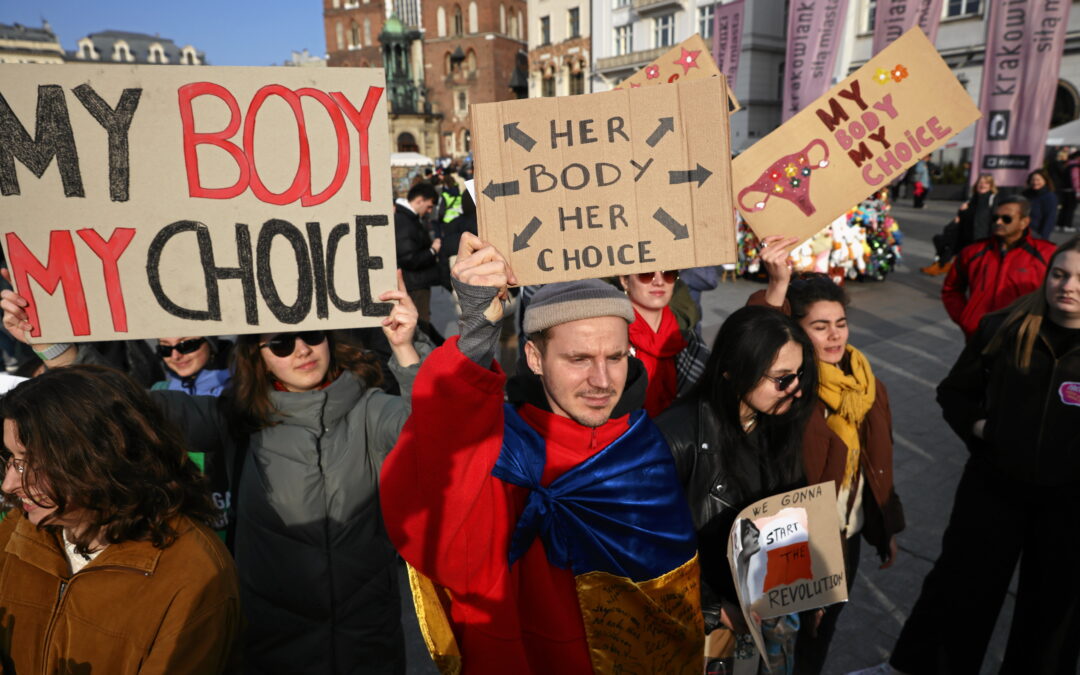Women in Poland face severe human rights violations due to the country’s restrictive abortion law, found the UN Committee on the Elimination of Discrimination against Women (CEDAW) in an inquiry report published yesterday.
The committee noted that the situation of women in Poland was further aggravated after a constitutional court ruling rendered abortion in cases of significant foetal deformities illegal.
“The situation in Poland constitutes gender-based violence against women and may rise to the level of torture or cruel, inhuman or degrading treatment,” said CEDAW deputy chair Genoveva Tisheva, as quoted in a statement from the committee.
#Poland 🇵🇱 violated women’s rights by unduly restricting access to abortion, UN committee #CEDAW finds.
Many women forced to carry unwanted pregnancies to term, seek unsafe clandestine procedures, or travel abroad for legal abortions.https://t.co/LMrP1LxRmw pic.twitter.com/MuxmH4OKxs
— UN Treaty Bodies (@UNTreatyBodies) August 26, 2024
The committee’s report follows a three-year inquiry into allegations made by NGOs focused on women’s rights that “Poland has committed grave and systematic violations of rights” by restricting access to abortion.
In March 2019, KARAT Coalition (Koalicja KARAT), the Federation for Women and Family Planning (Federacja na Rzecz Kobiet i Planowania Rodziny) and the Center for Reproductive Rights first notified CEDAW of the systemic restriction on accessing abortion in Poland.
The NGOs later supplemented their allegations in December 2019 and December 2020, indicating that aiding abortion is criminalised in Poland, with a prison sentence of up to three years, and that the availability of pregnancy termination is severely restricted.
Sorry to interrupt your reading. The article continues below.

Notes from Poland is run by a small editorial team and published by an independent, non-profit foundation that is funded through donations from our readers. We cannot do what we do without your support.
“CEDAW concluded that the criminalisation of assisting women in obtaining abortions, coupled with the very minimal legal exceptions and frequent practical inaccessibility of services, results in the denial of safe and legal abortion to the majority of women in Poland seeking an abortion,” the committee wrote in a statement.
It found that “Poland’s already restrictive legal framework…is further undermined by serious implementation flaws”.
These include doctors hesitating to perform legal abortions due to fears of criminal liability, as well as the “conscience clause” that allows medical professionals to refuse to provide abortions on moral or religious grounds.
The committee noted that such “restriction had reportedly contributed to several preventable deaths“.
Thousands joined protests against Poland’s near-total abortion ban yesterday following the latest death of a pregnant woman in hospital.
But the conservative authorities say the tragedy was caused by medical malpractice, not the abortion law https://t.co/dJFJn6O1Y4
— Notes from Poland 🇵🇱 (@notesfrompoland) June 15, 2023
The committee concluded that the current legislation, which forces women “to carry pregnancies to term, endangers their health and life, or subjects them to hostile and burdensome procedures”, causes “mental and physical suffering that constitutes gender-based violence against women.”
“Women’s mental anguish was exacerbated when forced to carry a non-viable foetus to term, a situation that has worsened since a 2020 Constitutional Tribunal ruling banned abortion even in cases of fatal foetal abnormalities,” noted Tisheva.
Until 2020, abortion in Poland was legal in three cases: when pregnancy threatened the life or health of the mother, when it resulted from a criminal act (such as rape or incest), or when a severe birth defect was diagnosed in the foetus.
In October 2020, the Constitutional Tribunal (TK), a body seen as being under the influence of the then-ruling Law and Justice (PiS) party, outlawed the third of those circumstances, which had previously made up over 90% of legal abortions. The ruling went into force in January 2021.
There were only 425 legal abortions in Poland last year.
That is less than half the number recorded in 2020, before a near-total abortion ban went into force, but significantly higher than in 2021 and 2022.
For more, see our report: https://t.co/2BHBhkN67j. pic.twitter.com/uCdFMFMyzz
— Notes from Poland 🇵🇱 (@notesfrompoland) July 26, 2024
The coalition that replaced PiS in December pledged to loosen the abortion law, but has so far failed to do so as there is no consensus between its members – who range from the left to centre-right – on how a new abortion law in Poland should look.
Last week Prime Minister Donald Tusk admitted that the abortion law is unlikely to be loosened during the current parliamentary term – that is, until at least 2027.
Even if a more liberal abortion law were to be approved by parliament, President Andrzej Duda, a conservative figure and PiS ally, has vowed to veto any attempts to soften the existing law.
The introduction of a near-total abortion ban in Poland has not significantly reduced the number of women terminating pregnancies.
Instead, it has forced more to travel abroad to do so, as well as to seek mental health treatment back homehttps://t.co/i4XToJXQDf
— Notes from Poland 🇵🇱 (@notesfrompoland) July 9, 2021
Main image credit: Jakub Włodek / Agencja Wyborcza.pl

Alicja Ptak is deputy editor-in-chief of Notes from Poland and a multimedia journalist. She has written for Clean Energy Wire and The Times, and she hosts her own podcast, The Warsaw Wire, on Poland’s economy and energy sector. She previously worked for Reuters.



















